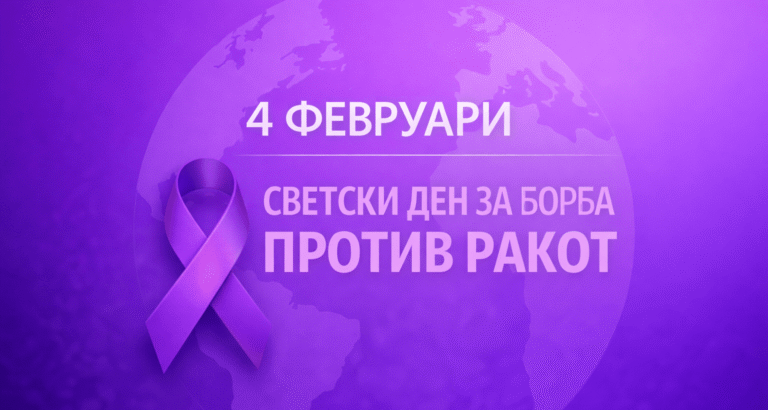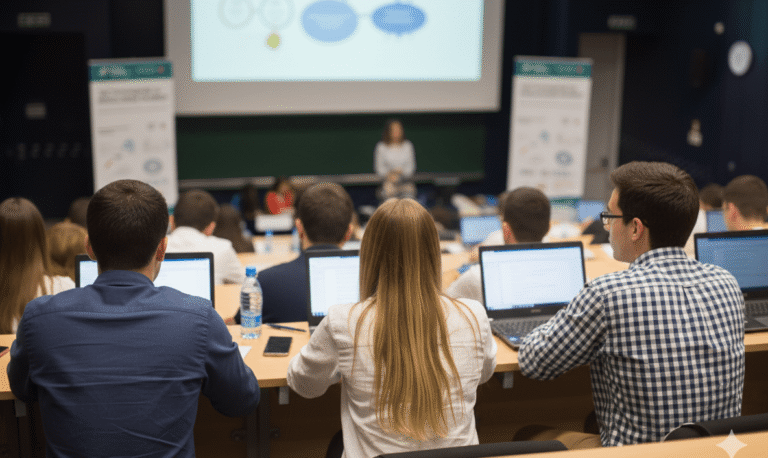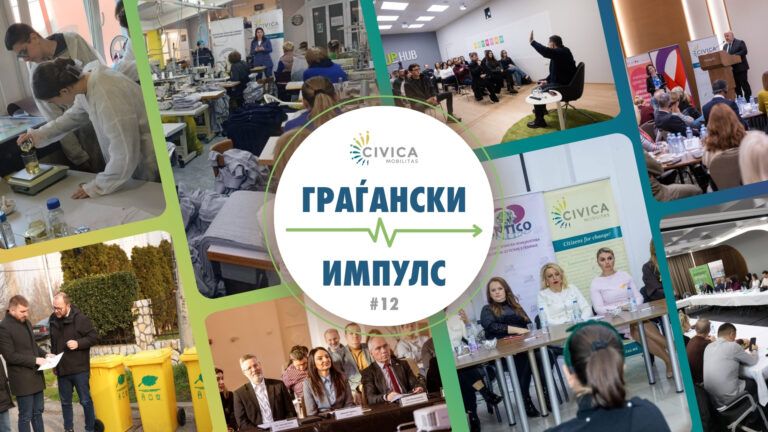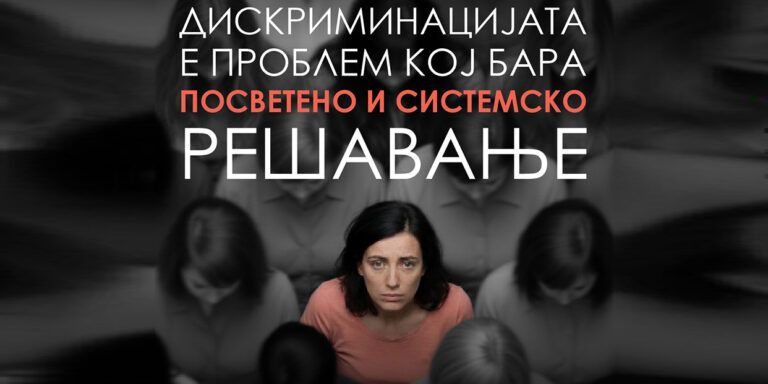Youth Power against Climate Threats in Ohrid, Struga and Debar
How does it look when three CSOs join their forces to enable the young people to become movers of changes? How does it look when the lake becomes a classroom, and the ship a podium for the voice of the youth and science? The project “Let’s Learn about Climate Changes” gave precisely this possibility to the generations that learn, cooperate, think of solutions and bravely walk to sustainable future.
Implemented by the Scout Poreche Brigade “Krste Jon” – Struga, the association Center for Sustainable Community Development – Debar and the Regional Green Center – Ohrid, supported by Civica Mobilitas via the Swiss Government, the project is focused on children and youth from Struga, Ohrid and Debar. The initiative has overcome the barriers of age, language and municipal boundaries, building a joint network of knowledge, empathy and action.

One of the series of activities that marked this initiative started with a two-day training in Struga, where 30 young participants were given the basis for project work: an analysis of the call, defining goals, up to preparation of a logical framework and making the budget. For many people this was the first time to get acquainted with the concepts that are the foundation of civic activism. “It was very interesting, there was time spent together, team work, lot of experience that I would not otherwise expect from everyday life, unless we were in this project”, says Mina Kralj (age 13), a participant from Struga. “Now I already have some knowledge on how to write a project, and it makes me more self-confident”.
This training was the introduction to a five-day youth camp on climate changes. It was a dynamic, educational and emotional experience where the young people continued what they had started. Their task was ambitious, i.e. they were to make a project application on climate issues, which could realistically be implemented in their municipalities. However, it was even more important to create something of their own, something that reflects their concerns and their dreams.

In each of the activities, starting from the morning exercises for focus and calming down, up to creating visual presentations, the team dedication was visible. One of the participants, Jana Tanaskoska from the village of Kalishta, Struga, says: “It was the first time for me to participate in such a project. Sara, our trainer, gave us all the room to talk, and I liked that at the same time she translated to Macedonian and Albanian. I will most remember the camp for the time spent together, but also because we have learnt how important it is to be able to write down and implement an idea.” The young people were not only participants, but also authors. A group suggested an eco-initiative for Vishni, a small mountain village where the visitors often leave garbage behind. Their suggestions were placing solar connections, organizing workshops, raising the awareness among the inhabitants and visitors. “We want to show that we in Struga also know what is happening in the world”, added Jana. Redon Jajaga (age 17) from Debar describes how the camp was a real turning point for him. “I have learnt a lot, not only about projects, but about myself too. By nature, I am introverts, and here I made some friends, I started speaking Macedonian a bit. The biggest challenge was not the budget, but how to find solutions to all problems”.

During the camp, the young people developed their idea and made drawings with their personal visualization of the world that they want to build. And when the time to present them came, each voice sounded brave and confident. Some projects were focused on protection of endangered animal species, others on recycling and cleaning, third on local advocacy. What united everybody was the desire for changes and the fact that the initiative came from themselves.
The culmination of the week was 21st June – the Day of the Ohrid Lake. There was a regional event held on Galeb ship in the lake, uniting science, civil sector, institutions, the young people and their families. This was not a common event, but a living, symbolic image of what this project represents or togetherness and decisiveness.

“We started with workshops in schools, we initiated discussions, we made 45 posts that reached more than 45,000 people. The young people want to get involved, they only need to be given the possibility,” said Ana Bojadzieva, the coordinator of the Regional Green Center – Ohrid.
The panel discussion on the boat was facilitated by the water management expert, Dejan Panovski, who stressed that the Day of the Lake, established in year 2000 by a Macedonian-Albanian board, is a symbol of cross-border cooperation and joint care about the national resource. D-r Orhideja Tasevska from the Hydrobiological Institute of Ohrid also participated in the panel, stressing the serious challenges that the lake faces: decreased water level, increased pressure on indigenous species, disturbance of the biological balance. “Each drop that we lose today, might not be compensated tomorrow”, she said, stressing the need for urgent action. “The most striking for me was that the young people were not only present, but they also talked, they had ideas and they were heard”, added Dushica Boeva, an expert in aqua culture. “What I saw in the ship was not only a panel discussion, but also a joint care and a hand reaching across generations”.

The project “Let’s Learn about Climate Changes successfully crosses barriers, be it generational, national or institutional. It reiterates the importance of each individual, especially the young people, when it comes to protection of our most precious heritage – nature and water. The capacities of the young people are strengthened, bridges are built between communities, and a real micro support to their projects is provided.
At one moment, the ship was anchored overseeing the old part of Ohrid. Above it there was reg sky, below it the lake, and on it there were young people laughing, listening, suggesting, together with experts, local government representatives and parents providing then with the biggest support to be included in environment protection initiatives.
At the end of this extraordinary week, there was not only the memory of the time spent together, the knowledge and energy, but also something more important: the feeling of power with the young people that they can initiative real changes. Determination was visible in their eyes, solutions in their ideas and the future that we all desire in their engagement.

As Dushica I. Boeva said: “It is the young people who are movers of changes and key actors in future policy creation”. With personal testimonies and creative eco initiatives, they showed that the engagement o the new generations is not only inspirational, but also efficient.
The project “Let’s Learn about Climate Changes” opened space for learning, it created a community or network of young people who think, act and see the future not as a challenge, but as a possibility that starts with them. We can only follow their steps ad witness the way from idea to implementation.







![Sre]ni praznici(2)](https://civicamobilitas.mk/wp-content/uploads/2025/12/sreni-praznici2-768x432.jpg)
